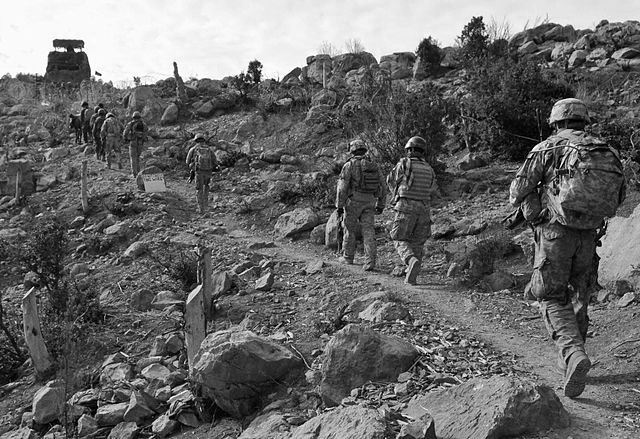Writing about those who stand in defense of their country is a challenge. If you’re close to your subject, if you’ve lived it, then you may have trouble stepping back to gain perspective. If you have never served, then you have to gain currency with terminology, basic tactical concepts, and may never capture the gut feelings of combat or even being a member of the service.
History can lend a hand. There is much source material. Possibly more has been written about war than any other human activity. I would guess from the books I’ve read that the leaders in war were favored first, and only during the last two hundred years have the front line soldiers’ stories gained prominence.
Soldiers serving under the command of General George S. Patton, nicknamed “Old Blood and Guts,” used to quip, “our blood, his guts”. Combat requires both, and a successful commander must also have the brains to see the battle in the context of history, to build a bold plan, and know when to hold to it or abandon it in the fog of war.
If you write about war, you will have to possess all three of these qualities.
Life in the military has been characterized as long periods of waiting patiently, punctuated by moments of heart-pounding action. A writer’s lot is not near as hazardous, but does involve working steadily, training yourself to know your genre and your craft, and then that moment of decisive action when you present a manuscript or a pitch for a book to an editor or agent.
It all comes down to that opportunity, maybe the only one you will get for your work to succeed.
Are you ready? Have you prepared, drilled, practiced? Has someone competent in the field checked your work? Are you using the right tools, tactics, strategies?
Will you pass inspection, will you reach your objective? Will you win?
–William V. Burns

